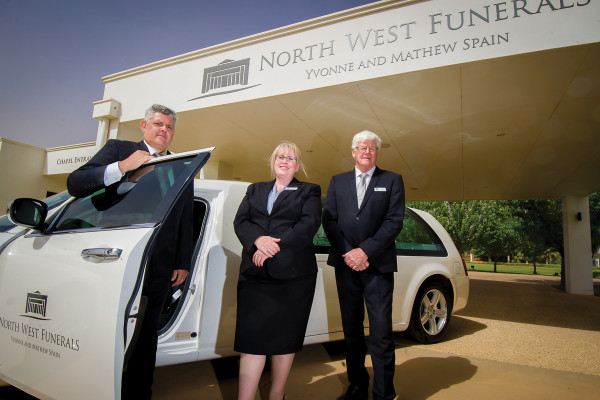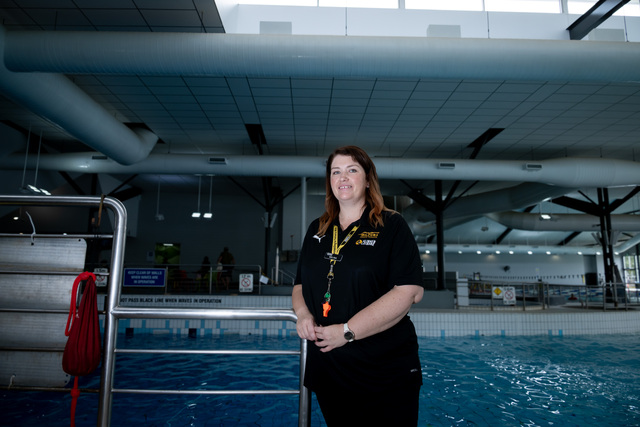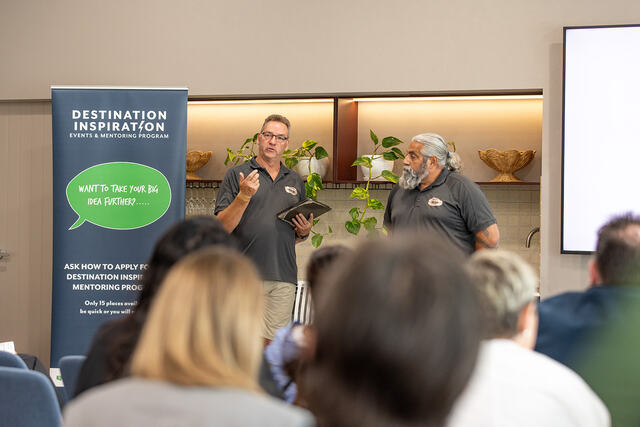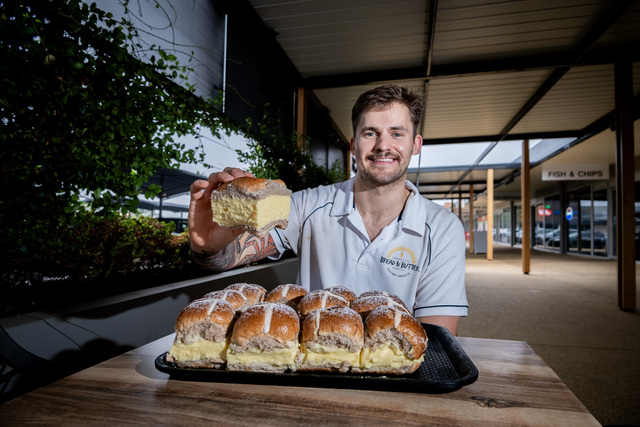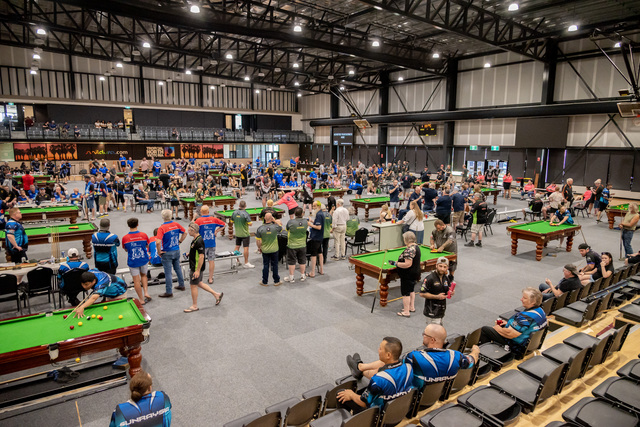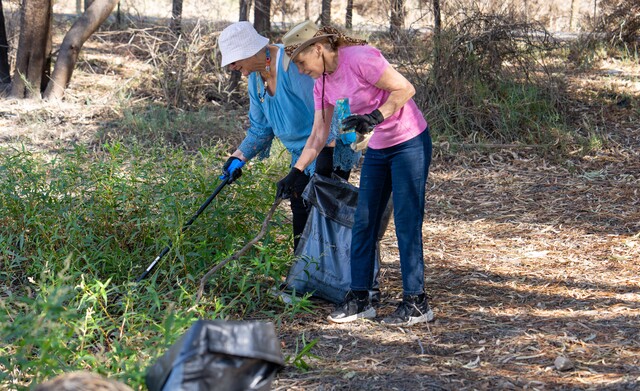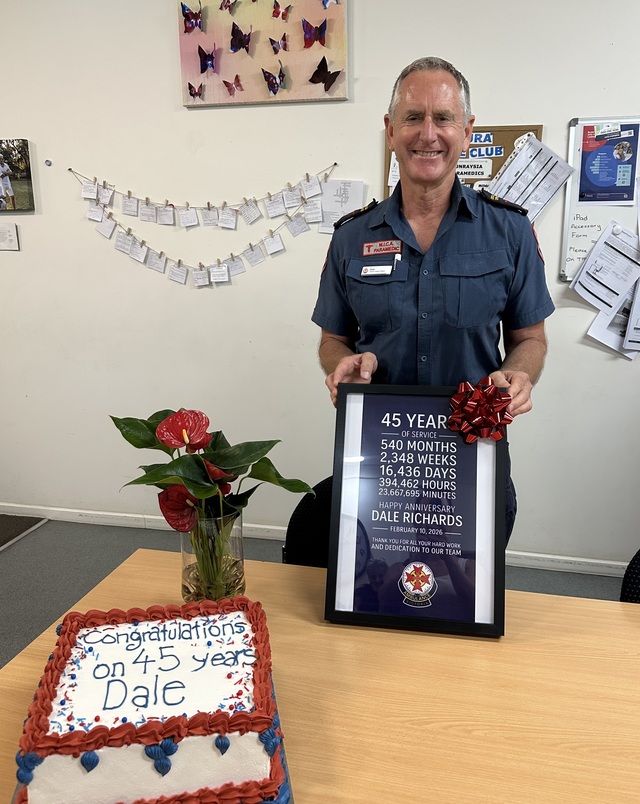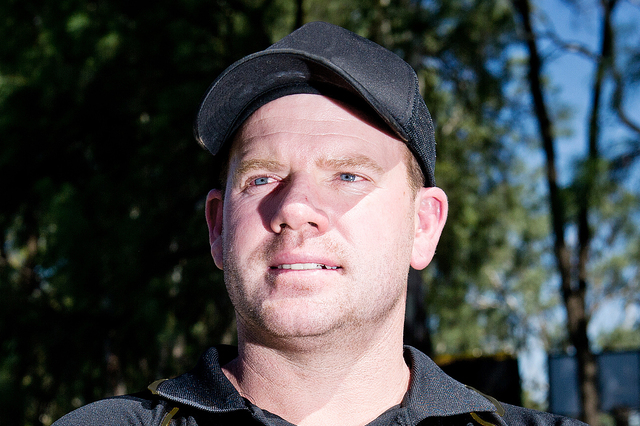Lisa Power ran away from the rat race of Sydney at 33 years old where she soon found her self working as a funeral director in Tasmania; and she has never looked back since. Jessica Cornish spent an evening with the Mildura newcomer, exploring the unique world of the funeral industry and her journey to becoming a Funeral Director and General Manager at North West Funerals. Pictures: Ben Gross
FOR as long as Lisa Power can remember she had always loved working in retail and customer service, however, after relocating to Tasmania for a sea change with no friends or family, she challenged herself to play the ‘yes’ game which led her down an unlikely path.
“I said ‘yes’ to opportunities that presented themselves,” she says. “Some of those opportunities were invites to parties. I met a guy while working at a furniture store and he said ‘do you want to come over to my house warming party?’”
It was this chance encounter that planted the seed in Lisa’s mind that changed her career direction forever. At the time Lisa met this man, he was working as a funeral director and he was convinced that Lisa would be a perfect fit for the role.
“He saw something more in me and he asked me every few years and I kept saying that’s your job, not my job,” she says. “Finally, an opportunity was presented as a funeral director’s assistant, I applied and the interview went well; but I got the ‘thanks but no thanks letter,’ but they said they’d keep me in mind.”
Six months later an unexpected phone call met Lisa’s ears and she was offered a position of a funeral director in Launceston. Lisa accepted and had planned to enjoy some hard-earned rest and relaxation before making the career switch, but sadly things did not turn out the way Lisa had planned.
“The week in between starting my new job I thought I’d be getting my hair and nails done, but I got a phone call that my mother had passed away,” she recalls. “It really was a gift she gave me in learning about grief. I look back now with a smile. At the time I didn’t do any smiling about the death of my mother. It took a few years to really understand what she had given me.”
Lisa warmly explains that with her mother’s unexpected passing it reminded her first hand of the difficulties and overwhelming tidal wave of emotions and grief that people experience when they lose loved ones.
“You cry for no reason and then you stop and then you laugh; it’s a roller coaster of emotions,” Lisa says. “It was the first time I had to deal with grief. It was hard but I look back fondly.”
For most people, the thought of being surrounded by grief on a daily basis would be something of a challenge; but Lisa explains that the world of funeral homes is actually a highly sought after career that can be challenging for newbies to break into. It’s quite common for people to relocate or move regionally to get their foot in the door, particularly in the role as funeral directors, partially because traditionally most funeral homes were family-run businesses, and people don’t leave jobs that they love.
“It’s not a rare occurrence to hear someone has been at a funeral home 10, 20 or even 30 years… so you’re pretty much you’re waiting for someone to retire,” Lisa explains.
Lisa says that one of the best things about her job is that every day is different. Funeral homes are fast-paced environments, which keeps her constantly on the ball and far from boredom.
“A typical day is to come into the office to prepare funerals,” she says.
“We liaise between different groups of people, the cemetery, the florist, the ministers and get everything together. We make the booklets, photos and make sure that everything is right.
“Plus there’s always a new family to talk to; we meet such amazing people and hear such amazing stories.”
With a constant stream of grieving people and the different stories that Lisa would hear on a daily basis, one could imagine that at some point being in a funeral home would start to wear you down. It would be hard to imagine how all that sadness wouldn’t take its toll on staff, so ensuring there is a supportive environment is a top priority for Lisa.
“We try to support each other in the office and the industry itself,” she says. “We’re very supportive in the line of business we work in; sometimes you do come home and feel a bit flat when you’ve dealt with something so difficult, but you just try to keep the professional hat on. While it can be hard, at the end of the day the satisfaction of holding their hands through the first couple of steps of grief is worth it.”

